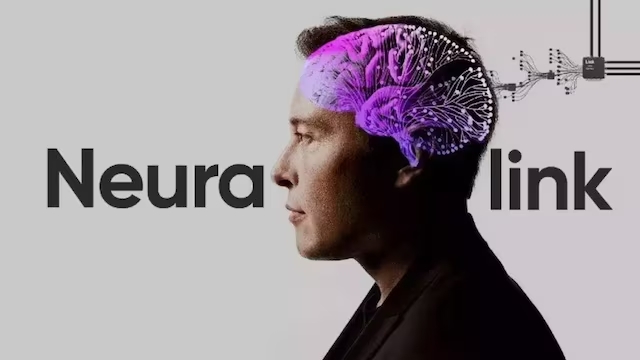Elon Musk claims that Neuralink has implanted a brain chip in its first human patient
Elon Musk disclosed that the goal of Neuralink's first product, "Telepathy," is to enable users to manage a variety of devices, including computers, phones, and other gadgets, only by thinking. The initial human recipient of the implant is making a full recovery and exhibiting promise.

Neuralink, Elon Musk’s pioneering brain-machine interface startup, has achieved a significant milestone by successfully implanting a brain chip in its first human patient. Musk shared this groundbreaking news on the social media platform X, revealing that the patient is recovering well and early outcomes of the procedure are promising.
The innovative brain implant, named “Telepathy,” developed by Neuralink, is designed to empower individuals with traumatic injuries to control computers through their thoughts. Last May, the company secured approval from the US Food and Drug Administration (FDA) to initiate its initial human trials, specifically targeting individuals with quadriplegia resulting from cervical spinal cord injury or ALS. Musk envisions this technology facilitating control over phones, computers, and various devices through mental commands.
The primary beneficiaries of this technology are expected to be individuals who have lost limb functionality. Musk highlighted the potential for enhanced communication capabilities, drawing parallels with the late physicist Stephen Hawking.
In his X post, Musk emphasized positive results in neuron spike detection, indicating successful recordings from the patient’s brain. While experts acknowledge the significance of Neuralink’s achievement, they stress the importance of demonstrating superiority over other players in the field, such as Blackrock Neurotech and Synchron.
Neuralink’s previous animal experiments, including monkeys playing computer games using brain signals, have sparked concerns among animal rights groups like the Physicians Committee for Responsible Medicine.
Musk’s announcement follows years of anticipation, with the entrepreneur predicting human implantation as early as July 2019. Despite progress from other companies like Synchron in the realm of human brain implants, Neuralink’s recent success is expected to temper criticism regarding potential delays.
However, a commercial brain implant from Neuralink is not imminent. Jaimie Henderson, a neurosurgery professor at Stanford University and adviser to Neuralink, cautioned against overhyping the technology, emphasizing that an approved device is still years away.
The critical challenge ahead for Neuralink involves demonstrating the safety and efficacy of its chips, which penetrate less than 2mm into the brain. The company aims to conduct 11 surgeries in 2024, marking a pivotal year for the development of this groundbreaking technology.


